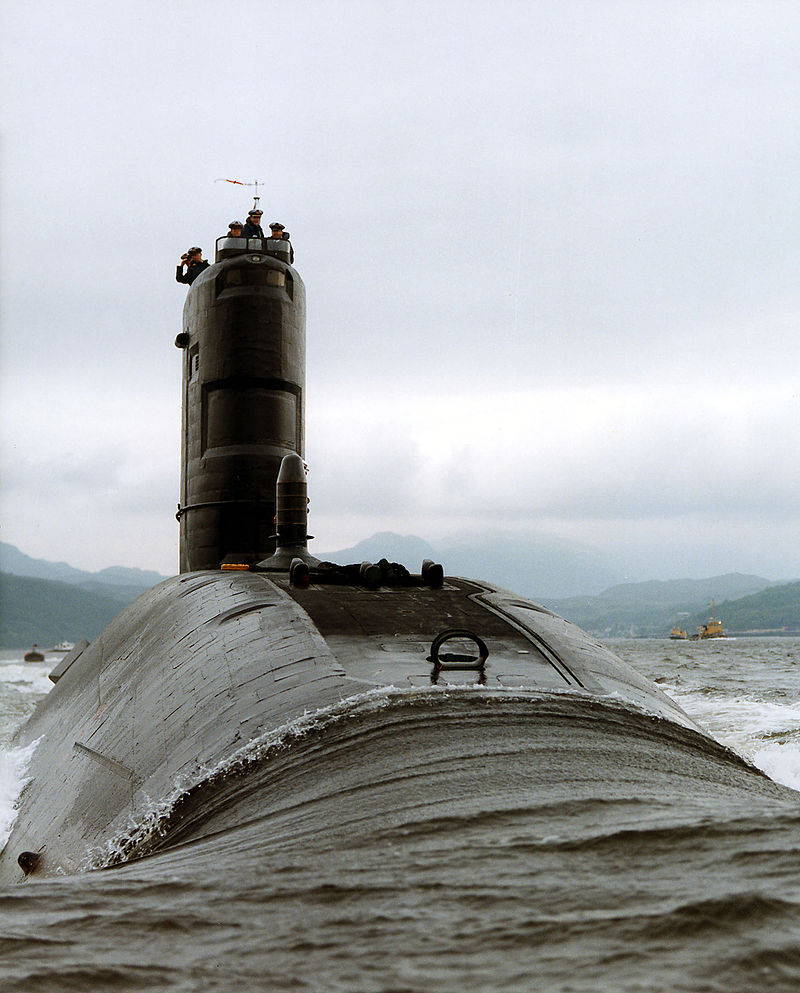Which submarine did you serve on and what type/class was it?
I joined the submarine service in 1975 and served in conventional diesel driven submarines (Finwhale, Oracle), Nuclear ‘attack’ submarine HMS courageous (3 times), and nuclear propelled Polaris missile submarine HMS Repulse.
When you joined the Royal Navy, did you always want to serve on a submarine?
Didn’t join the navy with the aim of serving in submarines but after initial training, I wanted to do something a little out of the ordinary, and hence chose submarines.
What was your submarine’s role in the fleet?
Various roles as there were various submarines. In simple terms, Polaris submarine (REPULSE) was part of the UK strategic deterrent and so was required to remain undetected and be ready to fire its Polaris missiles at 15 minutes notice when on patrol. Non-Polaris submarines (the rest) were tasked with hunting out Soviet submarines that were, in their turn, trying to counter our Polaris submarines and other naval assets.
What was the closet you got to action? Were there any times you got into trouble?
Spent a great deal of time hunting for Soviet submarines and tracking them in the North Atlantic.
What was your role onboard?
I Started as a junior officer and specialised in navigation. I qualified for command in 1983 and commanded HMS Oracle and HMS Courageous.
Typically how long did you stay at sea for?
It varied according to the task. The longest in one go was 14 weeks.

Describe the feeling of being leagues under the sea for such a long time. How long was it in between surfacing?
Life in a submarine is well structured. Everyone has their job to do and IS well trained to do it. Apart from the Captain and maybe one or two others, everyone is a watchkeeper. Before I was a captain, I kept 6 hour watches, 6 on, 6 off, for sometimes weeks at a time, 24 hours a day.
So work was structured, life was mostly routine but could be very tiring, especially if there was a lot of work to do when you were off watch, which reduced your time to sleep. As a captain, I was not keeping watches but was on call 24/7 whilst at sea. Captains typically don’t get much sleep as they are constantly being called and required to provide advice. 5 hours a day in short burst was typical; it was often less.
There was a strong sense of companionship on board. The crew became your family. We did not receive any news from home whilst at sea. We could not send news home either. Inevitably we missed our families, particularly children. And they missed us. Bringing up children is made much harder when you are by yourself. There was no fresh air, the air was recycled. There was little scope for exercise. In diesel submarines, there was not enough fresh water to wash or launder clothes, occasional showers were possible in nuclear submarines which had a very rudimentary laundry. After a few days, fresh vegetables were not available, although food was pretty good apart from that. We took feature films to see with us and showed them most nights. A great joy. We looked forward to getting home very very much. We craved our families.

Can you describe a day in the life onboard a submarine?
There was no typical day. The internal rhythm of the day was dictated by the watchkeeping regime and mealtimes. Most people were not affected by what was going on outside the submarine, but for those that were, their activities varied according to what the submarine was doing.
What were the conditions like on board? Did the restrictive space ever get too much?
Living conditions were not good and the lack of space was a frustration, but not a critical problem
Were you allowed any luxuries or personal items onboard?
Depends what you call luxuries. There was very little spec to stow anything, but a few books, photographs, perhaps a cake from home.
What were your living quarters like?
Living quarters cramped with no private space. Only the captain had his own cabin, and that was tiny.

Was everyone able to cope with the confined conditions?
Yes, they had to.
How many submariners were on board?
Depended on the type of submarine. Diesel powered (Oracle, Finwhale) about 72, Courageous 125, Repulse 160.
What did you miss most?
Family, particularly children
Did you serve in any other sections of the Navy?
Yes, various staff jobs.
What advice would you give to anyone wanting to serve on a submarine?
I think there are better ways of pursuing a naval career.

A big thanks to Chris Munns and the Royal Navy Submarine Museum for supplying us with the Q&A.
Visit the Royal Navy Submarine Museum and experience the true technical wonders of underwater warfare. The Museum has a collection of four submarines for you to visit including Britain’s first ever submarine, The Holland 1 plus an extensive collection of artifacts.
Find out everything you need to know at http://www.submarine-museum.co.uk/
